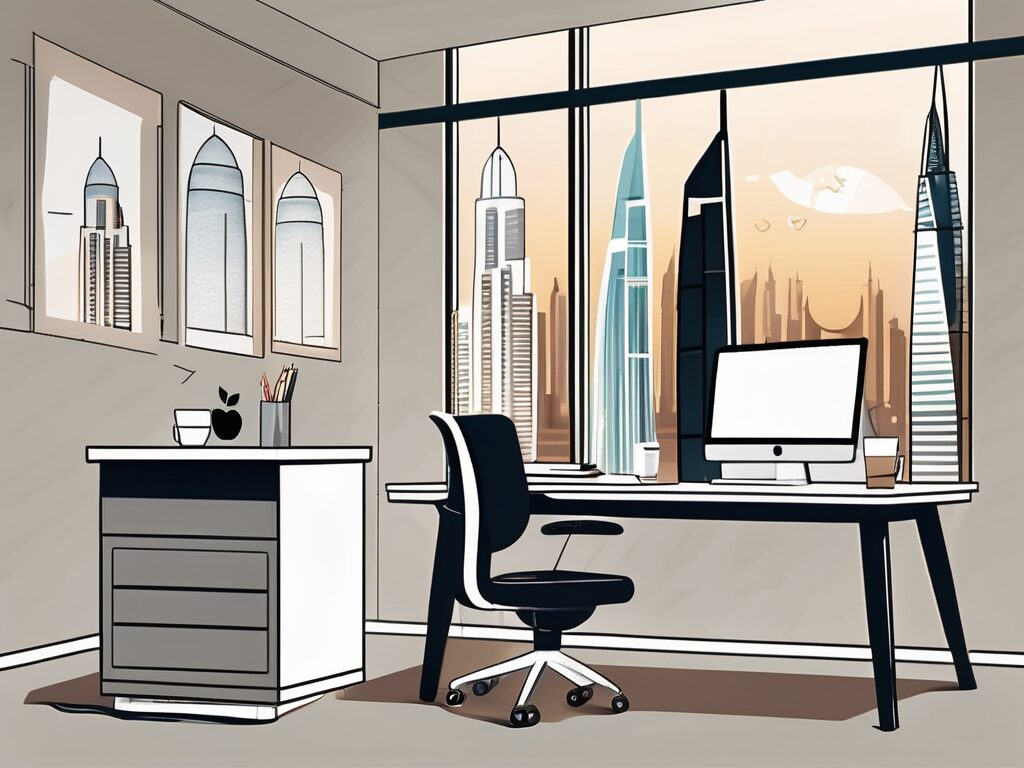The United Arab Emirates (UAE) is a popular destination for international teachers, offering a unique blend of cultural diversity, high-quality education institutions, and competitive salaries. However, understanding the cost of living in this vibrant Middle Eastern country is crucial to making an informed decision about whether to make the move. In this comprehensive guide, we’ll delve into the various aspects of living expenses in the UAE, from accommodation and utilities to food and entertainment.
Accommodation
Accommodation is likely to be your biggest expense in the UAE. The cost can vary significantly depending on the location, type of property, and whether it’s furnished or unfurnished. For instance, living in the heart of Dubai or Abu Dhabi is generally more expensive than in the outskirts or other emirates like Sharjah or Ajman.
Renting a one-bedroom apartment in the city centre of Dubai or Abu Dhabi can cost anywhere from AED 3,500 to AED 7,000 per month, while the same in the outskirts can range from AED 2,000 to AED 4,000. To put it into perspective, that’s roughly equivalent to renting in central London or New York City.
Utilities
Utility costs in the UAE can also add up, particularly during the summer months when air conditioning is a must. On average, utilities for a one-bedroom apartment can cost around AED 500 to AED 1,000 per month, including electricity, water, and gas. Internet and cable TV packages can add another AED 300 to AED 500 to your monthly bills.
It’s worth noting that some employers provide accommodation allowances or even housing as part of their employment packages, which can significantly reduce this expense.
Food and Groceries
Food expenses in the UAE are relatively comparable to those in Western countries. A meal at an inexpensive restaurant can cost around AED 30, while a three-course meal for two at a mid-range restaurant can set you back about AED 200. That’s akin to dining out in cities like Manchester or Birmingham.
When it comes to groceries, prices can vary based on where you shop. Supermarkets like Carrefour and Lulu offer a wide range of products at reasonable prices, while specialty and organic stores tend to be more expensive. On average, a monthly grocery bill for a single person might range from AED 800 to AED 1,200.
Alcohol
Alcohol is widely available in the UAE, but it’s more expensive than in many Western countries due to high taxation. A pint of beer in a pub can cost around AED 40-50, and a mid-range bottle of wine from a liquor store can cost around AED 60-100. It’s also worth noting that alcohol can only be purchased from licensed stores and consumed in private or at licensed venues.
Transportation
Public transportation in the UAE is efficient and affordable. A monthly pass for the Dubai Metro costs around AED 350, while a taxi ride starts at AED 12 and goes up by AED 1.82 per kilometre. That’s cheaper than public transport in cities like London or New York.
However, many residents prefer to drive in the UAE. Petrol is relatively cheap, costing around AED 2.22 per litre. However, the cost of buying and maintaining a car, along with insurance and parking fees, can add up.
Healthcare
Healthcare in the UAE is of a high standard but can be expensive. However, it’s mandatory for employers to provide health insurance for their employees, so most of your healthcare costs should be covered.
Out-of-pocket expenses can include prescriptions and certain specialist treatments. For example, a visit to a private doctor can cost around AED 300-600.
Leisure and Entertainment
The UAE offers a plethora of leisure and entertainment options, from beaches and parks to shopping malls and cinemas. A cinema ticket costs around AED 35-50, while a monthly gym membership can range from AED 200 to AED 500.
For those who enjoy shopping, the UAE is a paradise. However, while there are plenty of high-end boutiques and luxury brands, there are also plenty of affordable options, especially during the frequent sales and shopping festivals.
Education
If you’re moving to the UAE with children, education will be a significant expense. International schools can cost anywhere from AED 30,000 to AED 90,000 per year, depending on the school and grade level. However, many employers offer education allowances as part of their employment packages.
In conclusion, while the cost of living in the UAE can be high, it’s comparable to living in many major Western cities. Moreover, the tax-free salaries and benefits like accommodation and education allowances can help offset these costs, making the UAE an attractive destination for international teachers.
Enhance Your Teaching Career in the UAE with IPGCE
Considering the move to the UAE as an international teacher? Equip yourself with the right qualifications to overcome common barriers and seize the opportunity for career advancement. IPGCE offers a Level 7 programme designed to enhance your professional development, increase your chances for interviews, and connect you with a global network of educators. With our iPGCE, you’re not just preparing for the classroom; you’re boosting your potential for promotions and salary increases while gaining invaluable insights into global education systems. Embrace the flexibility of online study and join the UK’s #1 Teacher Training Course to become part of a community that values your growth and success. Join now and take the first step towards a thriving international teaching career in the UAE.

